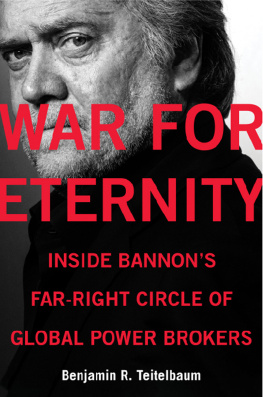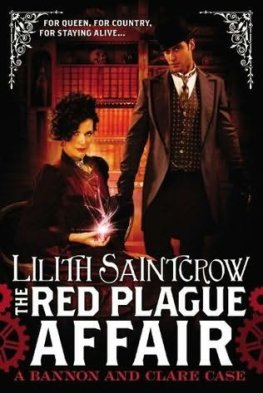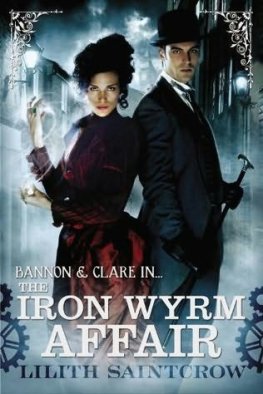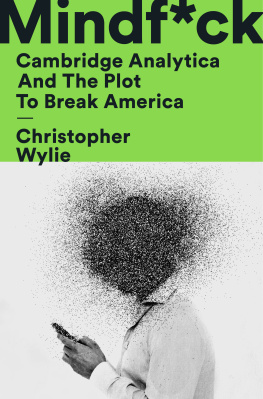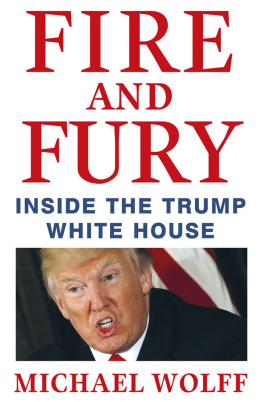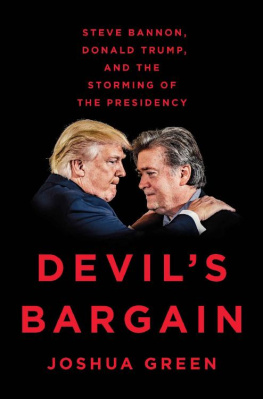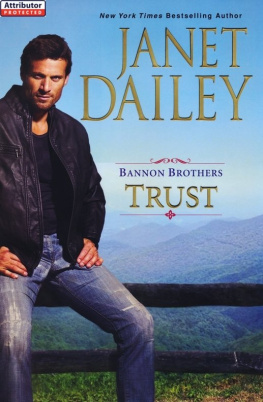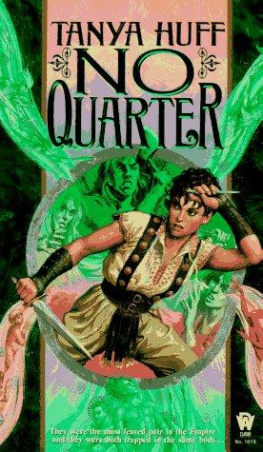Table of Contents
Landmarks
Australia
HarperCollins Publishers Australia Pty. Ltd.
Level 13, 201 Elizabeth Street
Sydney, NSW 2000, Australia
www.harpercollins.com.au
Canada
HarperCollins Publishers Ltd
Bay Adelaide Centre, East Tower
22 Adelaide Street West, 41st Floor
Toronto, Ontario, M5H 4E3
www.harpercollins.ca
India
HarperCollins India
A 75, Sector 57
Noida
Uttar Pradesh 201 301
www.harpercollins.co.in
New Zealand
HarperCollins Publishers New Zealand
Unit D1, 63 Apollo Drive
Rosedale 0632
Auckland, New Zealand
www.harpercollins.co.nz
United Kingdom
HarperCollins Publishers Ltd.
1 London Bridge Street
London SE1 9GF, UK
www.harpercollins.co.uk
United States
HarperCollins Publishers Inc.
195 Broadway
New York, NY 10007
www.harpercollins.com
Contents
A man encountered a tiger in the forest. Unable to flee or subdue the animal by force, he chose a third option, and leapt on the tigers back. The man knew that if he was careful and patient he could ride the tiger until it was old and weak. Then he could clutch its neck and begin to squeeze.
East Asian parable
For Liv and Signe
HIS CAR ROLLS SLOWLY ATOP THE COBBLESTONES OF Via del Babuino, toward the Piazza del Popolothe Peoples Squarewhere crowds swirl round a two-thousand-year-old Egyptian obelisk before the gazes of stone lions, demons, and dogs. Its a warm Rome morning in November 2018, and Russian philosopher and political activist Aleksandr Dugin is headed to one of the citys most exclusive addresses for a meeting he has sworn never to speak of.
He steps out onto the street just shy of the piazza and walks in among the white arches of the opulent Hotel de Russie. Glancing through the lobby and its rear windows, he sees the terraced gardens framing the courtyard and the outdoor Stravinskij Bar behind it, lush even in fall with palm trees, poplars, sculpted vines, and shrubs. Dugin doesnt linger. He passes through the lobby and turns up the stairs, where he is greeted by a handler who walks him onward, down a hall, through another set of doors, and into a suite and the outstretched arms of Stephen K. Bannon.
They exchange smiles and pleasantries while Bannon looks Dugin over, studying the Russians marble-blue eyes and his signature long grizzled beardan emblem of another place and another time. Incredible, Bannon says. Can you imagine what Washington would think?
Good question. Dugin was banned from traveling to the United States and Canada in 2015 after allegedly calling for a genocide in Ukraine. His international reputation, justified or not, as the mad mastermind of Vladimir Putins geopolitical agenda makes him particularly poisonous for someone like Bannon. Back in the States, Donald Trumps successful presidential campaign has been under criminal investigation for over a year and a half amid allegations it coordinated and colluded with the Russian government during the 2016 election. Bannon managed that campaign, and although those who worked under and around him are falling to the investigation as it churns onthree high-profile figures have pled guilty in the past weeks alonehe himself remained untouched. Now he is standing face-to-face with Russias most notorious ideologue, an inspiration not only to Putins geopolitics but to the Russian leaders radicalism as well.
They are in one of the hotels private rooms and will remain there all day, hidden from the white-clad clerks, concierges, and bellhops below; from the bustle of the piazza outside; from the metastasizing hunt for Russian influence in the U.S. government that rages across the Atlantic. Risks abound, but this couldnt wait any longer. Both men want to influence each other, and for Bannon, this entails bringing Dugin to his side, and Russia to Americas. How? By leveraging a bond between him and his guest that few know about, and even fewer would understand.
* * *
ABOUT EIGHT HOURS LATER , they emerge from the room, shaking hands and promising to meet again.
You are a very different kind of person, Mr. Bannon.
You, too, brother.
Reverent, irreverent till the end. Bannons handlers start to brief him on his dinner plans. Dugin turns back down the stairs, moving through the hotel lobby and out into the dark Rome night, where his car is waiting. For all the time they have spent together, there is still much left unsaid. In truth, Dugin regards Bannon as more than simply different, more in fact than a mere person. This American emerged from a wasteland, a society forged in modernism with no connection to its soil, no connection to history, and no sacred roots. To be American is to be without Tradition, which has made Bannons rise all the more spectacular. For there, among the ruins of modernity and materialismin the midnight kingdom, at the midnight houra sudden blast of light. The Russian sees Bannons rise to power as the beginning of a successful revolt against the modern world, one foretold by ancient mystics and detailed in the writings of underground twentieth-century spiritualists. Bannon isnt a person; hes an eschatological sign.
They may disagree about geopolitics, and their careers may have had ups and downs. It doesnt matter. They are differentiated men, men of the spirit, men against timepart of the same transcendental unity. We are Traditionalists, Dugin thinks to himself, and it is our time.
I TURNED ON MY RECORDER . SO MY FIRSTMY MAIN question is, are you a Traditionalist?
Steve Bannon pondered this question as he sat down at the table across from me, framed by windows opening onto the skyline of Manhattans Upper East Side. It was June 2018 and we were in one of the most exclusive hotels in the neighborhood. I had given Bannons code name to the reception desk. Soon uniformed staff whisked me up to his luxurious penthouse apartment, in the middle of which he presided, swarmed by assistants meeting his every request. He looks better in person, I thought, fresh out of the shower with his hair slicked back and face shaved. Tossed onto the couch behind him, however, was his signature green and brown barn jacketratty, worn, unbecoming on any body, and particularly on Bannons when he was at his most rumpled and ruddy. The jacket had itself become an object of caricature and ridicule in pop culture, an emblem of the ugliness many saw in the man himself and his ideas; ugliness that had been the preoccupation of exasperated and outraged liberals throughout Europe and North America who were struggling to make sense of his many contradictions and the possibility that he still wielded influence in their societies and beyond.
He took a sip of his black coffee. It depends what you mean. And this is off the record today. Later, we can see.
Click.
Only a few seconds had passed since I had turned my recorder on, then off, but what Steve said during the interval was richly revealing. My question caused him to hesitate and retreat; I doubt he would have done this had I asked about the sensational labels he is so often described with these days, like white supremacist, white nationalist, or neo-Nazi . His caution indicated that he knew exactly what I meant by Traditionalism, that he took the question seriously, and that he knew certain answers could be damning. It meant that the effort on my parta year of emails and text messages, false alarm trips to the airport, and a flight to New York City across two time zones on little more than a hunchhad been worth it.
By Traditionalismwith a capital Twe were referring to an underground philosophical and spiritual school with an eclectic if minuscule following throughout the past hundred years. When combined with anti-immigrant nationalism, however, it was often a sign of a rare and profound ideological radicalism, and that is why I follow it. I am a junior professor and scholar from Colorado specializing in the contemporary far right. For nearly a decade I have devoted myself to studying its personalities, life stories, ideologies, and cultural expressions, preferably through in-person observations and direct interactions. Its complicated worktechnically, intellectually, ethicallyand it has resulted in a steady stream of speculations and suspicions among my friends and those who know me personally as to how I could persist with, even enjoy, what I do. Indeed, my interest in the subject has various roots, including fear and alarm but also the thrill of discovery and the lessons brought by the unearthing of deeper complexities in places I expected only to find brutal dullness. The timeliness of the subject became an unexpected incentive as well. To study the contemporary radical right is to study the most transformative political movement of the early twenty-first century. It is to witness history.

